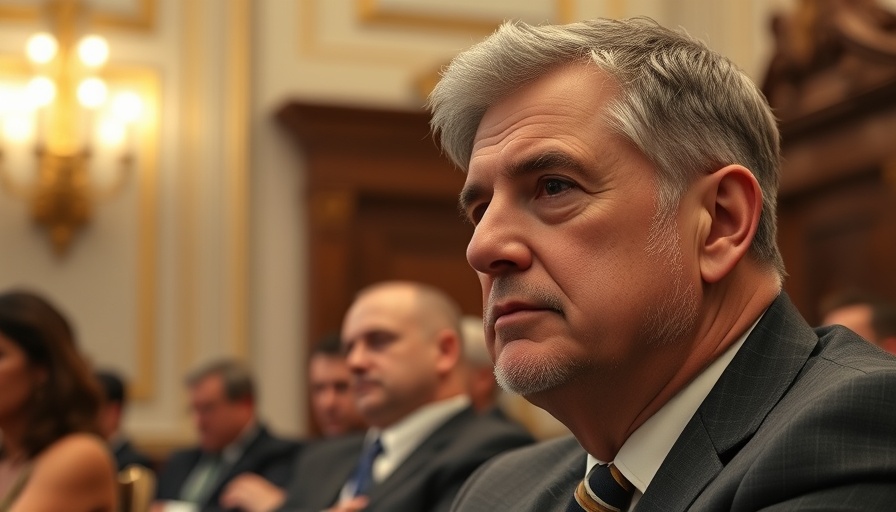
A Landmark Shift in Climate Policy
The recent announcement by the Trump administration to propose revoking the endangerment finding raises significant implications for climate regulation in the U.S. This 2009 declaration, which identified carbon dioxide and other greenhouse gases as threats to public health and welfare, provided the foundation for numerous climate-related regulations. Now, with the proposal to rescind this critical finding, environmental advocates warn of a potential setback to decades of progress in combating climate change.
The Repercussions on Public Health and Environment
The Environmental Protection Agency (EPA), under Administrator Lee Zeldin, has positioned this repeal as part of the "largest deregulatory action in American history." Critics, including three former EPA leaders, argue that this move not only jeopardizes environmental protections but also endangers the lives of millions of Americans who rely on clean air and water. The ramifications of this proposed rule could extend beyond environmental concerns, impacting public health, especially in communities already vulnerable to pollution-related health issues.
An Unfolding Political Landscape
As the debate surrounding the repeal intensifies, it reflects broader divisive lines within the political landscape regarding climate strategy. The administration's stance aligns with broader political narratives that prioritize short-term economic gains over environmental sustainability. Still, the public's increasing awareness and activism surrounding climate change pose challenges to such policies. In Central Florida, an area prone to extreme weather events, the community’s resilience may be tested as they face mounting pressure from regulatory rollback on climate protections.
Understanding the Legal Context
The endangerment finding serves as a legal foundation for various climate regulations enacted under the Clean Air Act. The potential repeal could dismantle existing protections for motor vehicles, power plants, and other significant pollution sources, further exacerbating the climate crisis. Legal analysts suggest that overturning such a substantial ruling might invite prolonged court battles, as states and municipalities increasingly seek to uphold and enforce their own environmental regulations in light of federal inaction.
Future Predictions: What Lies Ahead?
Looking forward, as the Trump administration moves to rescind key environmental regulations, experts predict a likely surge in climate activism and local initiatives aimed at enhancing sustainability. Central Florida's unique environmental challenges may spur community-led efforts to mitigate climate impacts. Grassroots organizations may emerge to fill the void left by federal rollbacks, advocating for local policies that prioritize environmental health and safety.
Community Response and Actionable Insights
For Central Florida residents, understanding the implications of this rule repeal is crucial. Engaging in local discussions, attending community meetings, and advocating for sustainable practices can create a collective impact. It's imperative for families to stay informed about voting trends, local environmental initiatives, and public health implications linked to air quality and greenhouse gas emissions. By fostering community resilience, residents can play an integral role in shaping a sustainable future, irrespective of federal policy shifts.
Your Role in Combating Climate Change
As these pivotal changes unfold, community stakeholders have a unique opportunity to influence future policy. Engaging with local representatives, supporting environmental organizations, and participating in public forums can amplify the dialogue on sustainability initiatives. Let's channel our collective effort into ensuring that our voices are heard, and our environment is safeguarded for generations to come.
In conclusion, the proposed repeal of the endangerment finding signifies a turning point in climate regulation that could have vast consequences for public health and environmental protections. The local community's engagement and advocacy remain paramount as they navigate these changes. We invite Central Florida residents to join the conversation around climate change, stay informed, and actively participate in fostering a healthier, more sustainable environment.
 Add Row
Add Row  Add
Add 




Write A Comment